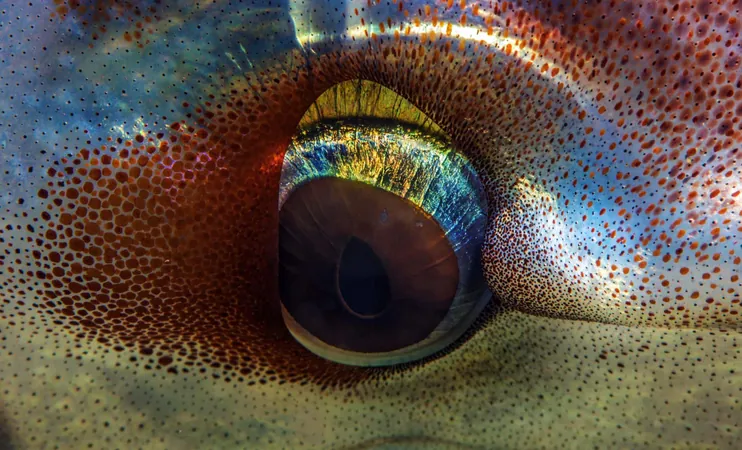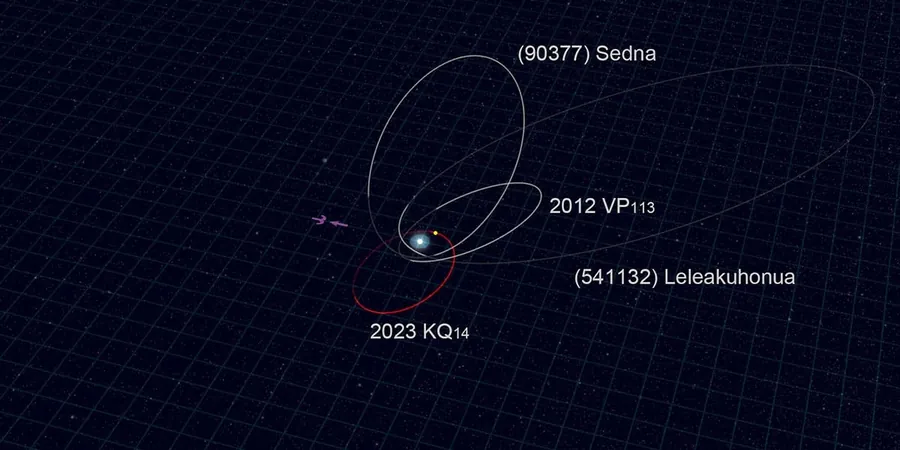
Ancient Squids: The Apex Predators That Ruled the Oceans 100 Million Years Ago!
2025-06-27
Author: Wai
A Stunning Discovery in the World of Paleontology
In a remarkable breakthrough, researchers have unearthed evidence that ancient squids were the dominant marine predators over 100 million years ago! A pioneering study from Hokkaido University has overturned long-held beliefs about when squids began to flourish, revealing that these fascinating creatures thrived in the ancient seas, far outnumbering even ammonites and bony fish.
Revolutionary Technology Unleashes Ancient Secrets
Using cutting-edge digital fossil-mining techniques, scientists meticulously scanned ancient rock layers in 3D, unlocking a treasure trove of fossilized cephalopod beaks. This advanced method, known as grinding tomography, allowed them to discover and analyze the remnants of over 1,000 cephalopods, including a stunning 263 squid species that were previously unknown. Dr. Shin Ikegami, the study's lead author, stated, "In both number and size, these ancient squids clearly dominated the seas!" The findings paint a vivid picture of the Late Cretaceous ecosystems, radically altering our perception of ancient ocean life.
The Apex Predators of the Mesozoic Era
The study reveals that squids weren't merely surviving—they were thriving as apex predators! Dr. Ikegami noted that their body sizes rivaled those of fish and even surpassed that of ammonites, emphasizing their role as the most abundant swimmers in the marine realm. These squids possessed unique adaptations that allowed them to thrive alongside the dinosaurs, displaying advanced swimming techniques and intelligence that gave them a crucial advantage over competitors.
A Rewrite of Cephalopod Evolution!
Traditionally, it was believed that squids exploded in diversity only after the catastrophic extinction event that wiped out the dinosaurs 65 million years ago. However, this groundbreaking research shifts that timeline, suggesting that squids had already begun their evolution and diversification well before this extinction. This revelation challenges existing theories about cephalopod development and their transition from the Late Cretaceous to the Paleocene.
The implications of this study are profound. We now understand that squids were not just minor players in ancient ecosystems—they were central figures in shaping the dynamics of prehistoric oceans. With each new discovery, the intricate story of our planet's past becomes richer, reminding us that the world of ancient marine life is a treasure chest waiting to be unlocked!


 Brasil (PT)
Brasil (PT)
 Canada (EN)
Canada (EN)
 Chile (ES)
Chile (ES)
 Česko (CS)
Česko (CS)
 대한민국 (KO)
대한민국 (KO)
 España (ES)
España (ES)
 France (FR)
France (FR)
 Hong Kong (EN)
Hong Kong (EN)
 Italia (IT)
Italia (IT)
 日本 (JA)
日本 (JA)
 Magyarország (HU)
Magyarország (HU)
 Norge (NO)
Norge (NO)
 Polska (PL)
Polska (PL)
 Schweiz (DE)
Schweiz (DE)
 Singapore (EN)
Singapore (EN)
 Sverige (SV)
Sverige (SV)
 Suomi (FI)
Suomi (FI)
 Türkiye (TR)
Türkiye (TR)
 الإمارات العربية المتحدة (AR)
الإمارات العربية المتحدة (AR)